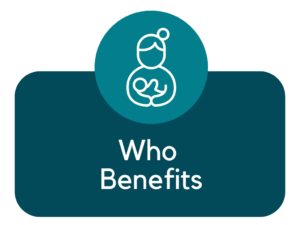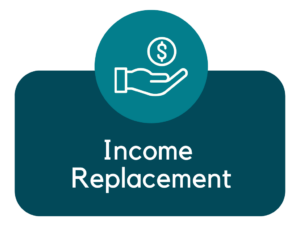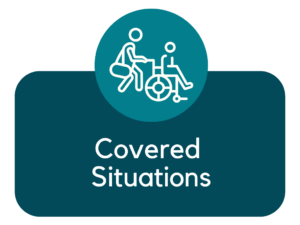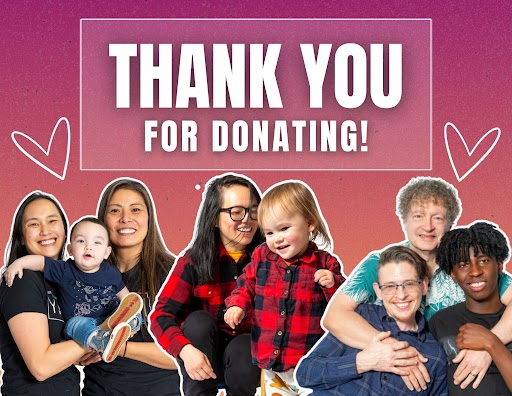 |
All Workers earning less than or $62,000 per year |
 |
Low & middle-income workers will get 90% of their wages during leave (up from 60%.) |
 |
Take time off to bond with a baby, care for a sick loved one, or recover from illness |
SB 951: Historic Benefits Increase in 2025 for California’s Paid Family Leave & Disability Insurance
A win for our advocacy work and a win for all families!
At Our Family Coalition, we are proud to share that the recent changes to California’s Paid Family Leave (PFL) and Disability Insurance (DI) programs are a direct result of our advocacy. This victory is not just a win for us but for all families across California, especially those in need of support when life’s challenges and blessings arise.
Starting January 1, 2025, millions of California workers will see a major increase in the support they receive through these programs. With the passage of SB 951, these updates will make it easier for families to take the leave they need for personal health issues, bonding with a new child, or caring for a seriously ill family member—without the worry of losing too much of their regular income.
Here’s everything you need to know about the upcoming changes to these vital programs.
You can also learn even more here.
What’s Changing?
Starting in 2025, California will increase its wage replacement benefits for low- and middle-income workers from 60% to 90% of their regular pay. This historic boost is made possible by SB 951 (Durazo), signed into law by Governor Gavin Newsom in 2022.
This change means that workers earning up to $62,000 per year will now be able to afford to take leave when they need it most—whether that’s to care for their own serious health condition, to welcome and bond with a new child, or care for a seriously ill family member.
Who Will Benefit from These Changes?
Low- to middle-income workers (especially those earning up to $62,000 annually) will see an increase from 60% to 90% of their regular wages during leave.
Families and caregivers will be able to take time off without the stress of a significant pay cut.
The changes will especially help LGBTQ community, immigrants, women, and workers of color, who are disproportionately affected by the inability to afford taking time off due to receiving lower paid income.
How Do I Know if I Qualify?
To determine if you might be eligible for Paid Family Leave or Disability Insurance, follow these simple steps:
Check your paycheck: If you see “CA SDI” or something similar listed, you are already contributing to the Disability Insurance (DI) Fund, which helps fund both Paid Family Leave and Disability Insurance programs.
Do you have a qualifying reason for leave? You may be eligible if you need to take leave for one of the following reasons:
Your own serious health condition (including mental health or planned surgeries).
Bonding with a new child (through birth, adoption, or foster care).
Caring for a seriously ill family member (including child, spouse, parent, grandparent, sibling, or registered domestic partner). Special needs arising from a family member’s military deployment.

How Do I Apply for Paid Family Leave or Disability Insurance?
You can apply through the Employment Development Department (EDD), the government agency that administers these programs. The application process is easy to navigate on their website.
Important: Paid Family Leave and Disability Insurance are wage replacement programs, not job protection programs. While these programs will help replace lost wages, other state and federal laws protect your job. Be sure to understand your rights when taking leave. Separate California and federal laws require your employer to give you your job back and it’s important to understand your rights.
Why Are These Changes So Important?
Before 2025, many workers couldn’t afford to take time off because the programs only replaced 60% of their wages—leaving them with a 40% pay gap. For many Californians, especially those in low-income brackets, this made taking time off simply unaffordable.
The SB 951 update to these benefits will help workers, particularly in marginalized communities, finally afford to take the leave they need and have funded without financial hardship.
What Does This Mean for California Workers?
This change represents a major step forward in supporting California workers who need time to care for themselves and their families. SB 951 helps build a future where workers, especially those in lower-income brackets, can finally take the leave they deserve without worrying about losing critical income. It’s a victory for families across California, from new parents to those caring for sick loved ones.
Want to Learn More?
You can visit the EDD website to learn more about how to apply for Paid Family Leave and Disability Insurance, and to find out more about how these changes will affect your rights and benefits starting in 2025.
A win for our families!
We are leading the way in ensuring that working families have the financial support they need during life’s most challenging and important moments. The changes coming in 2025 will give millions of workers the financial stability to take time off when they need it most—without the financial burden they’ve faced in the past. Thanks to SB 951, the future is brighter for workers who are building families, caring for loved ones, and recovering from illness.


